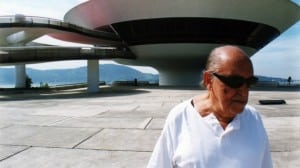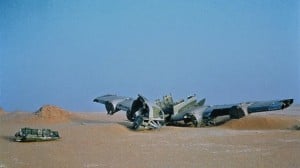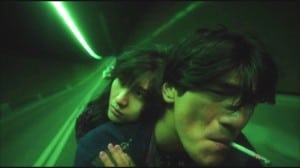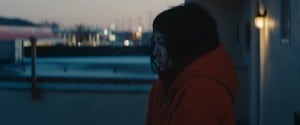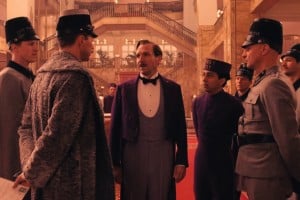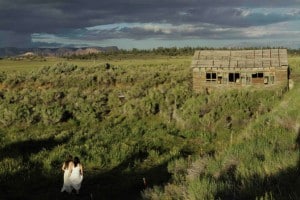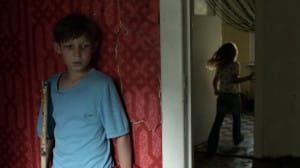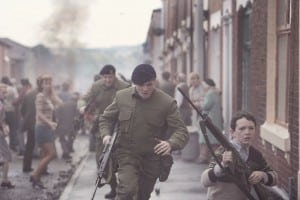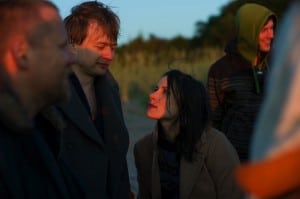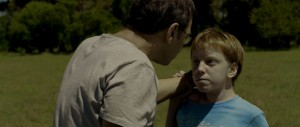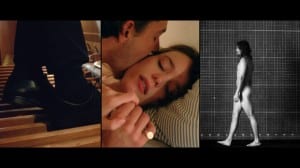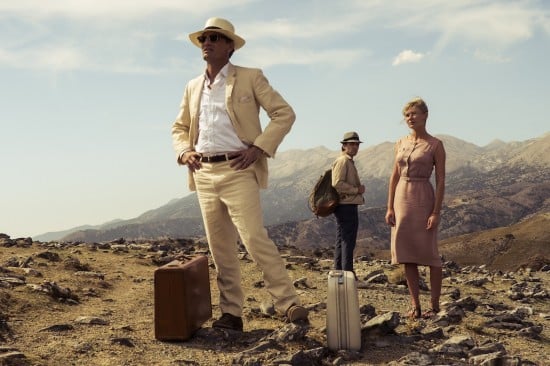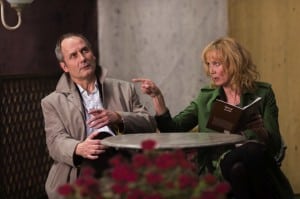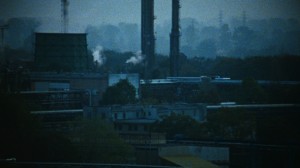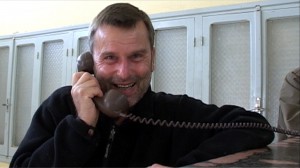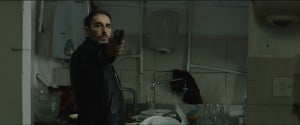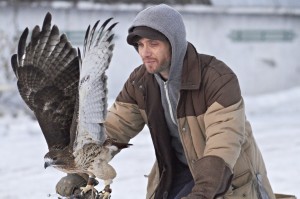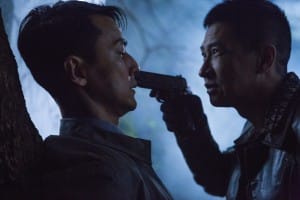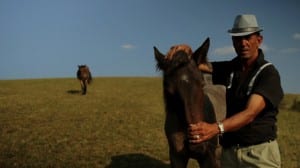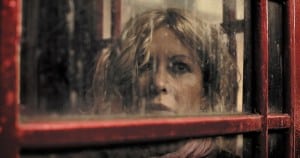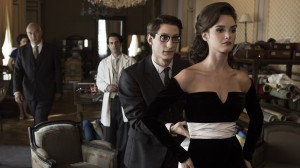Norway leads the Nordic contribution this year with Hans Petter Moland’s Competition entry IN ORDER OF DISAPPEARANCE. It has Stellan Skarsgard and Bruno Ganz and promises to be great fun, judging by his quietly humorous previous hit, A SOMEWHAT GENTLE MAN (from 2010). From Norway also comes BLIND (Panorama). Written and directed by Eskil Vogt (Oslo, August 31st), it bravely attempts to probe the subconscious of a newly sightless woman. Documentary-wise Norway also brings architectural portmanteau piece CATHEDRALS OF CULTURE, which boasts a fine pedigree of directors including Wim Wenders, Robert Redford and Michael Madsen.
And where would Berlinale be without the tradition of the homage and retrospectives strands. This year’s glittering classics in the Retrospectives this year range from Howard Hawks’ AIR FORCE; to Jean Cocteau’s LA BELLE ET LA BETE; Orson Wells’ CITIZEN KANE; Murnau’s FAUST; Clarence Brown’s FLESH AND THE DEVIL; Satyajit Ray’s NAYAK; and Marcel Carne’s QUAI DES BRUMES; not to mention Akira Kurosawa’s RASHOMON; Josef von Sternberg’s SHANGHAI EXPRESS. But lovers of Derek Jarman will be pleased that his own retrospective will be taking place at the BFI during February and March.
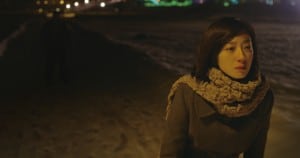
Bai Ri Yan Huo (Black Coal, Thin Ice) WORLD PREMIERE
People’s Republic of China
By Yinan Diao (Night Train, Uniform)
With Fan Liao, Lun Mei Gwei, Xuebing Wang
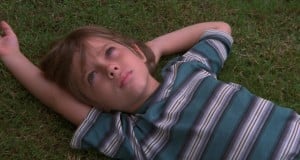 Boyhood – INTERNATIONAL PREMIERE
Boyhood – INTERNATIONAL PREMIERE
USA
By Richard Linklater (Before Midnight, Me & Orson Welles)
With Patricia Arquette, Ethan Hawke, Ellar Coltrane, Lorelei Linklater
 Chiisai Ouchi (The Little House) INTERNATIONAL PREMIERE
Chiisai Ouchi (The Little House) INTERNATIONAL PREMIERE
Japan – IMAGE TO FOLLOW
By Yoji Yamada (Tokyo Family, About Her Brother)
With Takako Matsu, Haru Kuroki, Hidetaka Yoshioka, Satoshi Tsumabuki, Chieko Baisho
Historia del miedo (History of Fear) WORLD PREMIERE 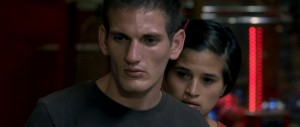
Argentina / Uruguay / Germany / France
By Benjamin Naishtat – feature debut
With Jonathan Da Rosa, Claudia Cantero, Mirella Pascual, Cesar Bordon, Tatiana Gimenez
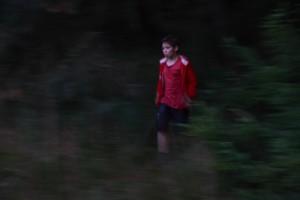 Jack – WORLD PREMIERE
Jack – WORLD PREMIERE
Germany – IMAGE TO FOLLOW
By Edward Berger
With Ivo Pietzcker, Georg Arms, Luise Heyer, Vincent Redetzki, Jacob Matschenz, Nele Mueller-Stöfen
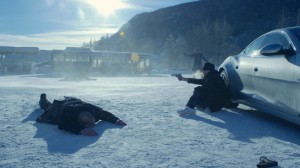 Kraftidioten (In Order of Disappearance) WORLD PREMIERE
Kraftidioten (In Order of Disappearance) WORLD PREMIERE
Norway / Sweden / Denmark
By Hans Petter Moland (A Somewhat Gentle Man, The Beautiful Country)
With Stellan Skarsgård, Bruno Ganz, Pål Sverre Hagen, Birgitte Hjort Sørensen, Jakob Oftebro, Anders Baasmo Christiansen
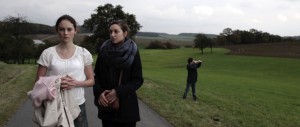 Kreuzweg (Stations of the Cross) WORLD PREMIERE
Kreuzweg (Stations of the Cross) WORLD PREMIERE
Germany
By Dietrich Brüggemann (Move; Renn, wenn du kannst)
With Lea van Acken, Franziska Weisz, Florian Stetter
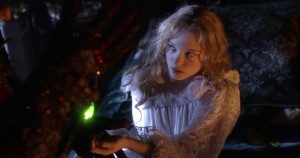 La belle et la bête (Beauty and the Beast) INTERNATIONAL PREM
La belle et la bête (Beauty and the Beast) INTERNATIONAL PREM
France / Germany
By Christophe Gans (Silent Hill, Brotherhood of the Wolf)
With Vincent Cassel, Léa Seydoux, André Dussollier
Out of competition
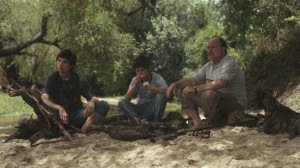 La tercera orilla (The Third Side of the River) WORLD PREMIERE
La tercera orilla (The Third Side of the River) WORLD PREMIERE
Argentina / Germany / Netherlands
By Celina Murga (A Week Alone, Ana and the Others, Normal School)
With Alian Devetac, Daniel Veronese, Gaby Ferrero, Irina Wetzel, Dylan Agostini van del Boch
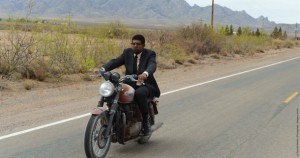 La voie de l‘ennemi (Two Men in Town) WORLD PREMIERE
La voie de l‘ennemi (Two Men in Town) WORLD PREMIERE
France / Algeria / USA / Belgium
By Rachid Bouchareb (London River, Little Senegal)
With Forest Whitaker, Harvey Keitel, Brenda Blethyn, Luis Guzmán, Dolores Heredia
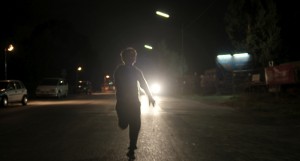 Macondo WORLD PREMIERE
Macondo WORLD PREMIERE
Austria
By Sudabeh Mortezai – feature debut
With Ramasan Minkailov, Aslan Elbiev, Kheda Gazieva
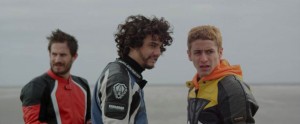 Praia do Futuro WORLD PREMIERE
Praia do Futuro WORLD PREMIERE
Brazil / Germany
By Karim Aïnouz (Suely in the Sky, Madame Satã)
With Wagner Moura, Clemens Schick, Jesuita Barbosa
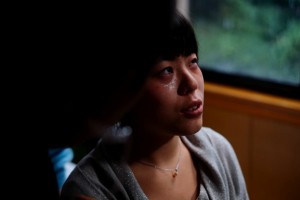 Tui Na (Blind Massage) WORLD PREMIERE
Tui Na (Blind Massage) WORLD PREMIERE
People’s Republic of China / France
By Ye Lou (Mistery, Suzhou River)
With Hao Qin, Xiaodong Guo, Lei Zhang
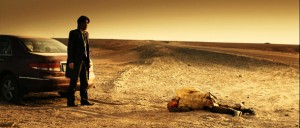 Wu Ren Qu (No Man’s Land) INTERNATIONAL PREMIERE
Wu Ren Qu (No Man’s Land) INTERNATIONAL PREMIERE
People’s Republic of China
By Hao Ning (Crazy Stone, Mongolian Ping Pong)
With Zheng Xu, Nan Yu, Bo Huang, Bujie Duo
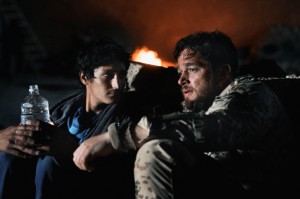 Zwischen Welten (Inbetween Worlds) WORLD PREMIERE
Zwischen Welten (Inbetween Worlds) WORLD PREMIERE
Germany
By Feo Aladag (When We Leave)
With Ronald Zehrfeld
THESE ARE THE COMPETITION TITLES. FORUM AND PANORAMA TITLES WILL FOLLOW SHORTLY. BERLINALE RUNS FROM 6 UNTIL 15 FEBRUARY 2014
P A N O R A M A
Panorama fictional features – IMAGES TO FOLLOW SHORTLY
Asabani Nistam! (I’m Not Angry!) – Iran
by Reza Dormishian
With Baran Kosari, Navid Mohammadzadeh, Reza Behboudi, Misagh Zare, Bahram Afshari
IP
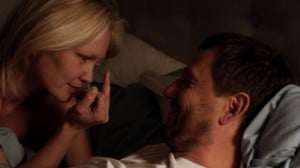 Blind – Norway / Netherlands
Blind – Norway / Netherlands
by Eskil Vogt
With Ellen Dorrit Petersen, Henrik Rafaelsen, Vera Vitali, Marius Kolbenstvedt
EP
Difret – Ethopia
by Zeresenay Berhane Mehari
With Meron Getnet, Tizita Hagere
EP
Fieber (Fever) – Luxembourg / Austria
By Elfi Mikesch
With Eva Mattes, Martin Wuttke, Carolina Cardoso, Nicole Max, Sascha Ley
WP
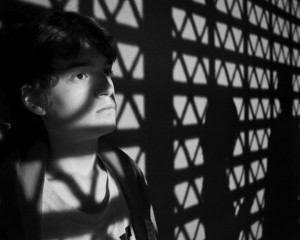 Güeros – Mexico
Güeros – Mexico
By Alonso Ruízpalacios
With Ilse Salas
WP
Highway – India
By Imtiaz Ali
With Randeep Hooda, Alia Bhatt
WP
Ieji (Homeland) – Japan
By Nao Kubota
With Kenichi Matsuyama, Yuko Tanaka, Sakura Ando, Takashi Yamanaka, Seiyo Uchino
WP
In Grazia di Dio – Italy
By Edoardo Winspeare
With Celeste Casciaro, Laura Licchetta, Barbara De Matteis, Anna Boccadamo, Gustavo Caputo
WP
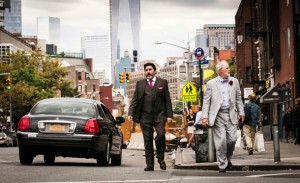 Love Is Strange – USA
Love Is Strange – USA
By Ira Sachs
With John Lithgow, Alfred Molina, Marisa Tomei, Charlie Tahan, Cheyenne Jackson
IP
Mo Jing (That Demon Within) – Hong Kong, China
By Dante Lam
With Daniel Wu, Nick Cheung
WP
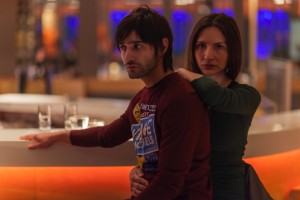 Na kathese ke na kitas (Standing Aside, Watching) – Greece EP
Na kathese ke na kitas (Standing Aside, Watching) – Greece EP
By Yorgos Servetas
With Marina Symeou, Marianthi Pantelopoulou, Yorgos Kafetzopoulos, Nikos Georgaki
Night Flight – Republic of Korea WP
By LeeSong Hee-il
With Lee Jae-jun, Kwak Shi-yang
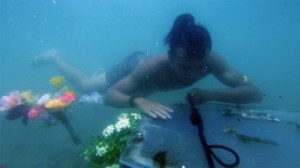 Nước (2030) – Vietnam WP
Nước (2030) – Vietnam WP
By Nghiêm-Minh Nguyễn-Võ
With Quỳnh Hoa, Quý Bình, Thạch Kim Long, Hoàng Trần Minh Đức, Hoàng Phi
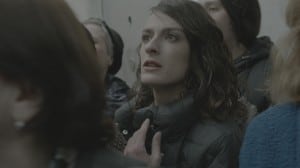 Patardzlebi (Brides) – Georgia / France WP
Patardzlebi (Brides) – Georgia / France WP
By Tinatin Kajrishvili
With Mari Kitia, Giorgi MaskharashvilI
Risse im Beton (Cracks in Concrete) – Austria WP
By Umut Dağ
With Murathan Muslu, Alechan Tagaev, Mehmet Ali Salman, Erdem Turkoglu, Ivan Kriznjak
The Midnight After – Hong Kong, China WP
By Fruit Chan
With Wong You-nam, Simon Yam, Kara Hui, Janice Man, Suet La
Viharsarok (Land of Storms) – Hungary WP
By Adam Császi
With Andras Sütő, Ádám Varga, Sebastian Urzendowsky
YE (The Night) – People’s Republic of China WP
By Hao Zhou
With Zhou Hao, Liu Xiao Xiao, Li Jin Kang, Zhou Feng Qi
Arrête ou je continue (If You Don’t, I Will) by Sophie Fillières, France (WP)
Bai Mi Zha Dan Ke (The Rice Bomber) by Cho Li, Taiwan (WP)
Bing Du (Ice Poison) by Midi Z, Taiwan / Myanmar (WP)
Calvary by John Michael McDonagh, Ireland / United Kingdom (EP)
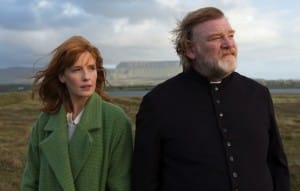
Hoje Eu Quero Voltar Sozinho (The Way He Looks) by Daniel Ribeiro, Brazil (WP)
Is the Man Who Is Tall Happy? by Michel Gondry, France (EP)
O Homem das Multidões (The Man of the Crowd) by Marcelo Gomes, Cao Guimarães, Brazil (IP)
Papilio Buddha by Jayan Cherian, India / USA (EP)
Quick Change by Eduardo Roy Jr., Philippines (IP)
Stereo by Maximilian Erlenwein, Germany (WP)
Test by Chris Mason Johnson, USA (EP)
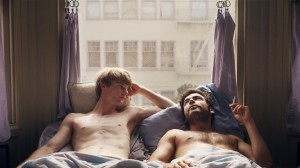
The Better Angels by A. J Edwards, USA (IP)
Kuzu (The Lamb) by Kutluğ Ataman, Germany / Turkey (WP)
Things People Do by Saar Klein, USA (WP)
Triptyque (Triptych) by Robert Lepage, Pedro Pires, Canada (EP)
Über-Ich und Du (Superegos) by Benjamin Heisenberg, Germany / Switzerland / Austria (WP)
Unfriend by Joselito Altarejos, Philippines (WP)
Xi You (Journey to the West) by Tsai Ming-liang, France / Taiwan (WP)
Yves Saint Laurent by Jalil Lespert, France (IP)
(WP= World Premiere, IP= International Premiere, EP = European Premiere)
THE BERLINALE RUNS FROM 6 UNTIL 16 FEBRUARY 2014


